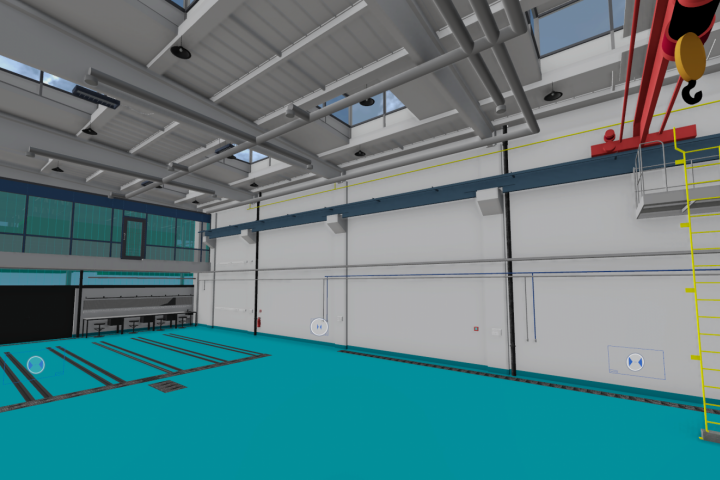
The Automation Laboratory will be created by reconstruction of selected existing faculty premises. It will be an environment designed primarily for students of doctoral programmes and teaching, especially in the field of BIM and information modelling. The laboratory will be used across departments and will also be used for collaboration with industrial partners. For example, it will be equipped with robotic arms with attachments for 3D printing in concrete, clay and plastic and a range of other technologies and robots to enable a range of activities on site. The laboratory will be used by both students of the Faculty of Civil Engineering and students of the Faculty of Architecture of the CTU as part of their education at the master's and doctoral level. Its high use is also envisaged within the Master's degree programme Digitisation in Construction, which will be launched at Faculty of Civil Engineering in the next academic year.
"Courses taught across the Bachelor's and Master's degree will prepare students for the use of digital technologies in construction and expand their knowledge in the field of information systems and automation in the preparation and implementation of buildings. It will also address the areas of business and project management using information systems and the use of robotic and automation technologies to improve the efficiency of construction. For example, we will use IBM learning tools, and we will include two selected software tools that have applications not only in the construction industry. Furthermore, our goal in the lab is to improve the application of robotic technologies and software tools for both faculty teaching and directly for the construction industry. This is an area where there is a huge scope in the construction industry. Automation, not only technological, but also process automation, digitalization and the use of information systems have great implications for the construction industry," says doc. Josef Žák, Head of the Automation Laboratory at Faculty of Civil Engineering.
The automation laboratory will be conceived as a multifunctional space. It will include a hall dedicated to machinery for automation of construction processes, which has a high load-bearing floor, a cleaning system, the necessary electrical equipment with pressurized air, air conditioning designed for highly dusty environments and other technologies. There is also space for other equipment - for example, for monitoring of construction and facility management. In addition, the laboratory will be equipped with a server room with high connectivity to the backbone network, space for PhD students and a meeting room with presentation technology. The creation of the laboratory is partly financed by the OP JAK project Development of the infrastructure facilities of the DSP at CTU.